- BlackVoter.Org
- Posts
- BLACKVOTER.ORG #124
BLACKVOTER.ORG #124
Empowering Awareness: Stay Grounded With Blackvoter.org Newsletter!Empowering voices, driving change. 🗳️ Advocate for justice, equity, and representation at BlackVoter.org. Join us as we harness the power of the ballot to shape a future that reflects our values and aspirations. #BlackVoter #EmpowerChange Publish Time
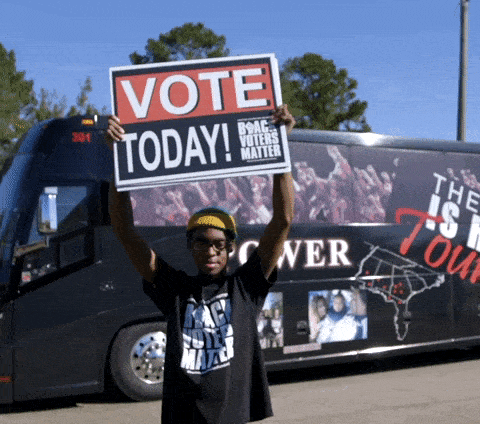


In her speech at the Democratic National Convention, Kamala Harris laid out the case for why Democrats should be given another four years in the White House. She spoke of standing up to global tyranny and shared personal stories about her single mother.
While Democrats inside the convention arena were feeling euphoric and confident, some voters outside of the Democratic bubble, particularly Republicans, did not bother to watch the speech. Among undecided voters, Harris's words did not immediately sway them.
However, some voters liked what they heard and felt more open to voting for Harris and the Democratic ticket. Bob and Sharon Reed, both retired schoolteachers from Pennsylvania who had previously voted for Trump, found themselves conflicted after watching Harris's speech.
They appreciated the specific contrasts she drew between herself and Trump and felt less sure about voting for the former president. Overall, while Harris's speech may not have converted every undecided or Republican voter, it did make some of them reconsider their choices.

The article discusses how Vice President Kamala Harris practices post-racial politics, which is a refreshing approach in today's divisive political climate. The author explains that true diversity cannot be achieved through bureaucratic measures such as "diversity, equity, and inclusion" protocols, which often lead to labeling and pigeonholing ethno-racial groups.
Harris, through her own background and marriage, exemplifies the idea that diversity cannot be pre-scripted and forced, but rather comes from fair laws and practices that do not reduce individuals to their racial identities. Additionally, Harris's choice of Minnesota Governor Tim Walz as her running mate demonstrates a commitment to transracial justice and the idea that racial identification should not define a person's value or potential.
The article concludes by stating that embracing true diversity will move society away from divisive ethno-racial distinctions and towards a more harmonious, post-racial future.

East Texas representatives have reacted with shock and concern following a fatal shooting at a Trump rally in Pennsylvania. Former President Donald Trump was whisked off stage after shots rang out, and at least one person, including the reported gunman, was killed.
The representatives expressed their support for Trump and called for prayers for his safety and the well-being of the country. Congressman Nathaniel Moran of Tyler prayed for Trump and the nation, while State Senator Bryan Hughes asked the public to pray for Trump following the "failed assassination attempt.
" Texas State Representative Matt Schaefer called the incident a sad commentary on the state of the nation, while Trinity County Sheriff Woody Wallace warned that such an act could trigger a large movement and result in chaos. Other politicians, including Governor Greg Abbott and Senator Ted Cruz, echoed the calls for prayer and condemned political violence.
Former Presidents Barack Obama and Joe Biden also expressed relief at Trump's safety and condemned the violence.

Black voters in Chicago are expressing apathy towards the presidential campaign of Kamala Harris and the Democratic National Convention. Concerns raised by Black residents include the perception that the Biden-Harris administration has failed in their handling of immigration policies, particularly at the U.
S.-Mexico border.
Many Chicago residents have observed migrants receiving housing assistance and other benefits while long-standing Black community issues, such as the lack of affordable housing and job competition, remain unaddressed. Some Black voters plan to sit out the 2024 election or vote for former President Donald Trump, citing their disillusionment with the Democratic Party's failure to address Black agendas.
The concerns raised by Black Chicago voters highlight the challenge Democrats face in mobilizing the Black vote in swing states in order to win the election.

The New York Times has gathered a panel of 15 young undecided voters, aged between 18 and 27, to track their opinions of Kamala Harris, Donald Trump, and the issues that matter most to them. The participants express hesitations about both Harris and Trump.
They view Harris as too far left and lament her alleged cover-up of President Biden's aging issues. However, they are also skeptical of Trump, particularly his behavior following the January 6th attacks.
The participants express concerns about inflation, public safety, the Israel-Gaza conflict, and student debt. They are undecided because they want a candidate who respects institutions and systems, unifies the country, and addresses these pressing issues.
The article highlights the importance of younger voters and their potential impact on the upcoming election.
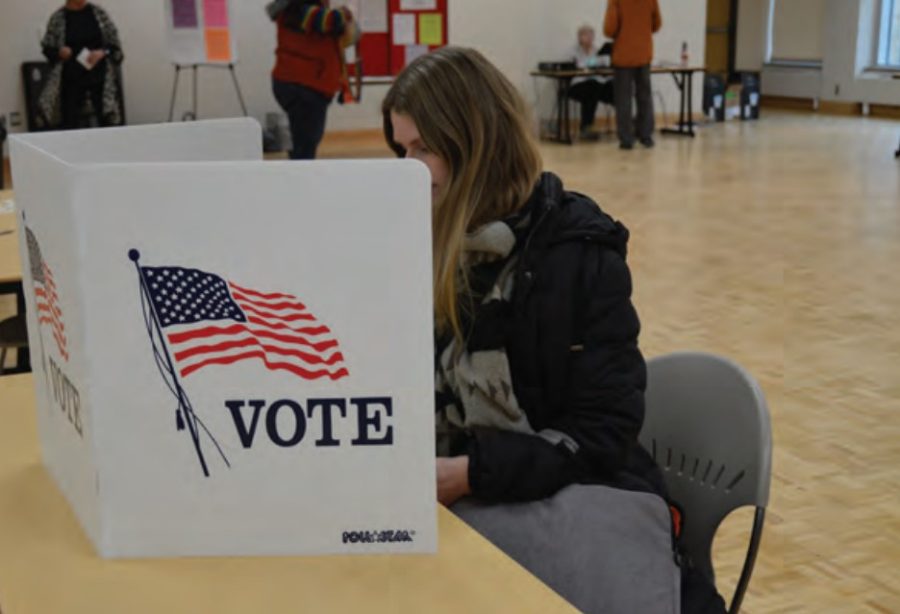
The Democratic National Convention (DNC) held a panel discussion on mobilizing youth voters, emphasizing the importance of engaging young adults in the political process. The panel, titled "From Apathy to Action: Mobilizing the Youth Vote," highlighted the role of young people in driving social and political movements and the need for representation in the political world.
The speakers discussed the causes of apathy among young voters, including feelings of ostracization and a lack of representation. They also noted the impact of the internet in reducing voter apathy by providing platforms for young people to see themselves represented in politics.
The panelists emphasized the importance of educating and empowering young voters, creating spaces for them to come together and have positive experiences in political organizing. They encouraged young people to take action, engage in conversations, and make their voices heard in the upcoming election.
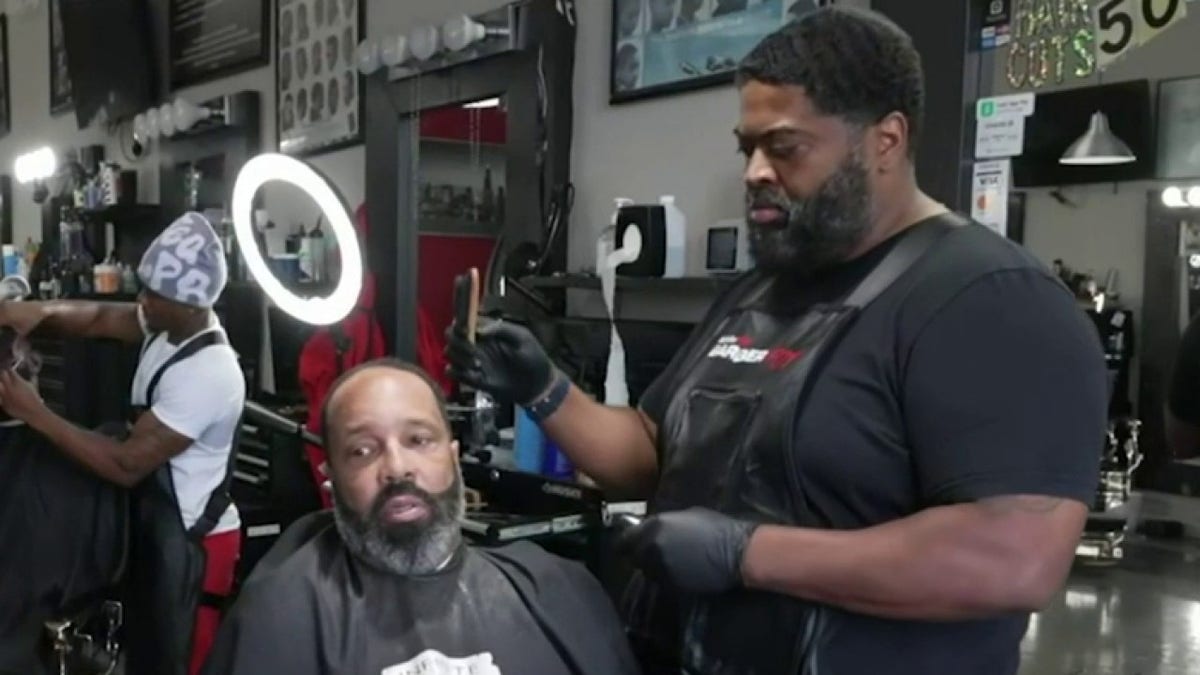
Former President Donald Trump expressed his belief that Black voters in Chicago are aware that they are being "conned by the Democrats" during a recent interview on Fox News. Trump responded to interviews conducted by Fox News' Lawrence Jones, who spoke to Black voters in Chicago barbershops about their opinions on Kamala Harris' candidacy.
The interviews revealed a range of opinions, with some voters torn between voting for Harris or Trump. Many expressed frustrations with the Democratic Party and urged fellow Black voters to consider alternative options.
Trump emphasized the need for Republicans to effectively communicate with the Black community and address their concerns, particularly regarding crime, illegal immigration, and economic struggles. He also expressed empathy for the frustrations faced by Black voters and criticized prosecutors who target him for questioning election processes.

The final night of the Democratic National Convention was a memorable and energizing event that showcased Vice President Kamala Harris as the future leader of the nation. The evening included powerful speeches, moving performances, and heartfelt family moments that celebrated Harris's historic candidacy and the future of the Democratic Party.
Notable moments included the appearance of the Exonerated 5, who spoke about their wrongful convictions in the Central Park jogger case, and the heartfelt tribute by Maya Harris, Kamala's younger sister, to their late mother. Comedian D.
L. Hughley provided some much-needed humor while also apologizing for spreading misinformation about Harris.
The highlight of the night was Harris's own speech, where she spoke passionately about her middle-class roots, legal career, and strong stance on domestic and foreign policy. Overall, the evening exuded strength, resilience, and hope, leaving the audience ready for change and inspired by Kamala Harris's leadership.

A new University of Houston and Texas Southern University poll suggests that Donald Trump's actions could hurt Senator Ted Cruz in the upcoming U.S.
Senate race in Texas. The poll shows that Democratic nominee Kamala Harris has cut Trump's lead in the state in half since June, and Republican Ted Cruz is only 2.
1 percentage points ahead of Democrat Colin Allred. If Trump's support continues to decline and Harris gains momentum, Allred could have a chance at winning the Senate race.
Trump's struggles to find his footing and his mean-spirited rhetoric could alienate right-leaning independent voters and Hispanics, opening the door for Allred to win the race. While the odds are still against Allred, political change can come unexpectedly, and this could be the scenario that leads to an upset victory for the Democrats.
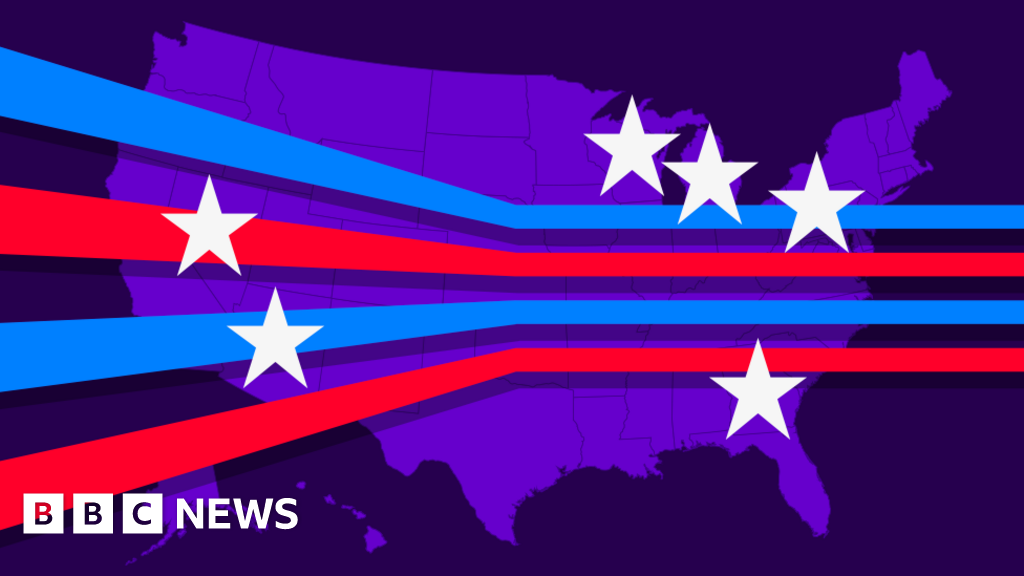
In the upcoming 2024 US election, experts believe that only a handful of swing states will determine the outcome. These states include Arizona, Georgia, Michigan, Nevada, Pennsylvania, and Wisconsin.
Both campaigns are now concentrating their efforts on winning over undecided voters in these key states. Arizona, a border state with Mexico, has been a focal point of the immigration debate and has also seen a bitter row over abortion access.
Georgia has a large African-American population and was a state where Trump-backed Republican officials attempted to overturn Biden's win in the 2020 election. Michigan has the country's largest proportion of Arab-Americans, and Nevada has a sizable Latino population.
Pennsylvania, where Trump survived an assassination attempt, has seen the highest rise in grocery prices in the country. Finally, Wisconsin has been a deciding state in both the 2016 and 2020 elections.

In his speech at the Democratic National Convention, Shomari Figures, the Democratic nominee for Alabama’s 2nd Congressional District, praised Kamala Harris and advocated for legislation to strengthen voting rights. Figures emphasized the importance of protecting the sacred right to vote and highlighted the debt owed to the freedom fighters who fought for voting rights in America.
He mentioned that Harris would sign the John Robert Lewis Voting Rights Act, which requires specific states and political subdivisions to receive preclearance from the US Department of Justice or the US District Court for the District of Columbia before making changes to voting rights laws. The bill aims to restore Section 5 of the 1965 Voting Rights Act, which was substantially weakened by the US Supreme Court in 2013.
Figures will face Republican nominee Caroleene Dobson in the upcoming November election.
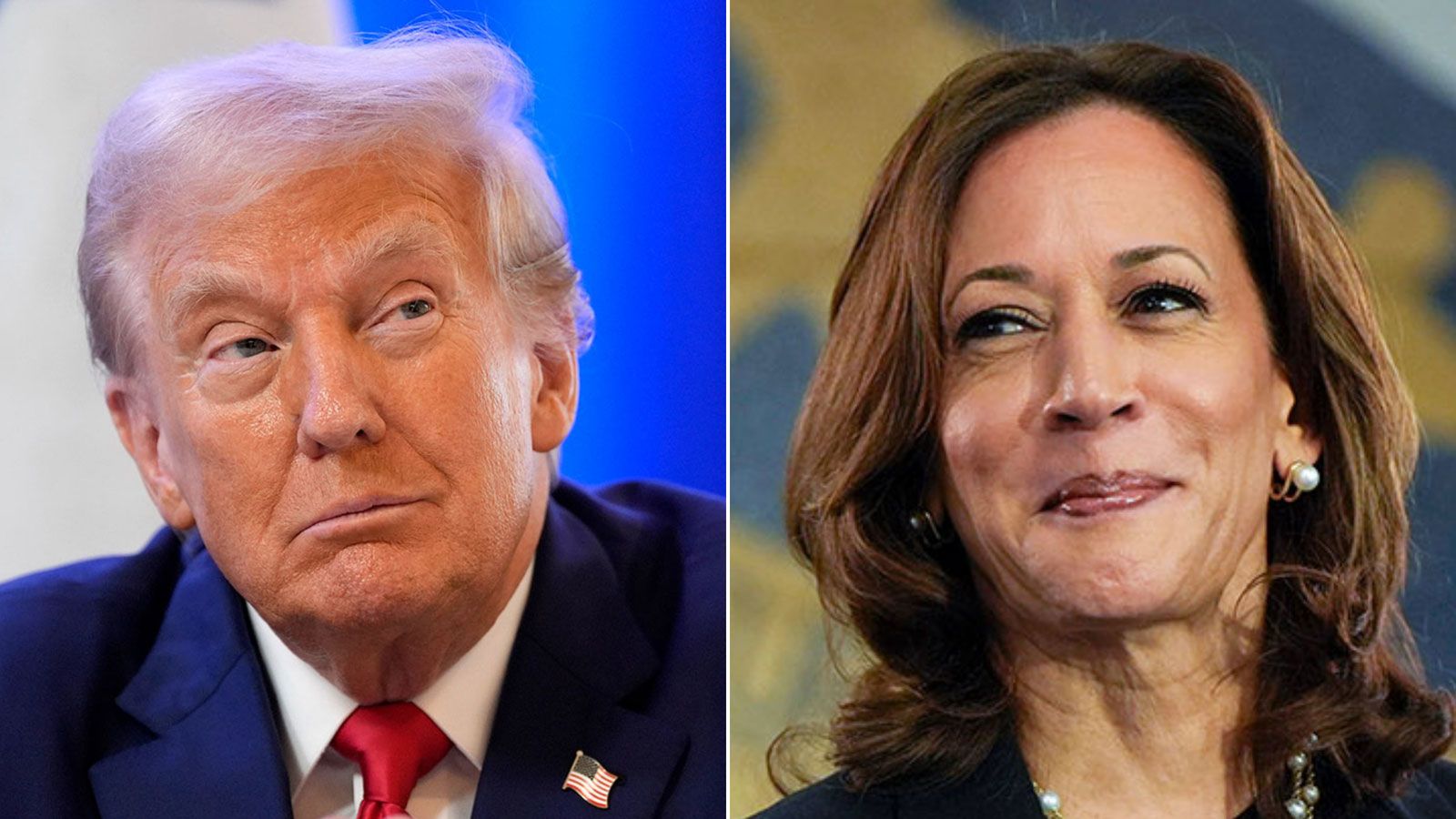
Vice President Kamala Harris delivered a powerful speech at the Democratic National Convention, drawing a contrast between her agenda and that of former President Donald Trump. Harris, the first Black woman and first Asian American to lead a major-party ticket, presented herself as a champion of democracy and a defender of American principles.
She emphasized her commitment to the economy, immigration, and reproductive rights, while casting Trump as a threat to democracy. Trump, on the campaign trail, criticized Harris, claiming she had failed to deliver on her promises while in office.
Meanwhile, independent candidate Robert F. Kennedy Jr.
is expected to suspend his campaign and may endorse Trump, according to sources. Harris' speech received positive feedback, with attendees praising her articulation of the Israeli-Palestinian conflict and support for self-determination for both sides.
She also spoke directly to the struggles faced by Americans, highlighting housing, public safety, and resource needs.
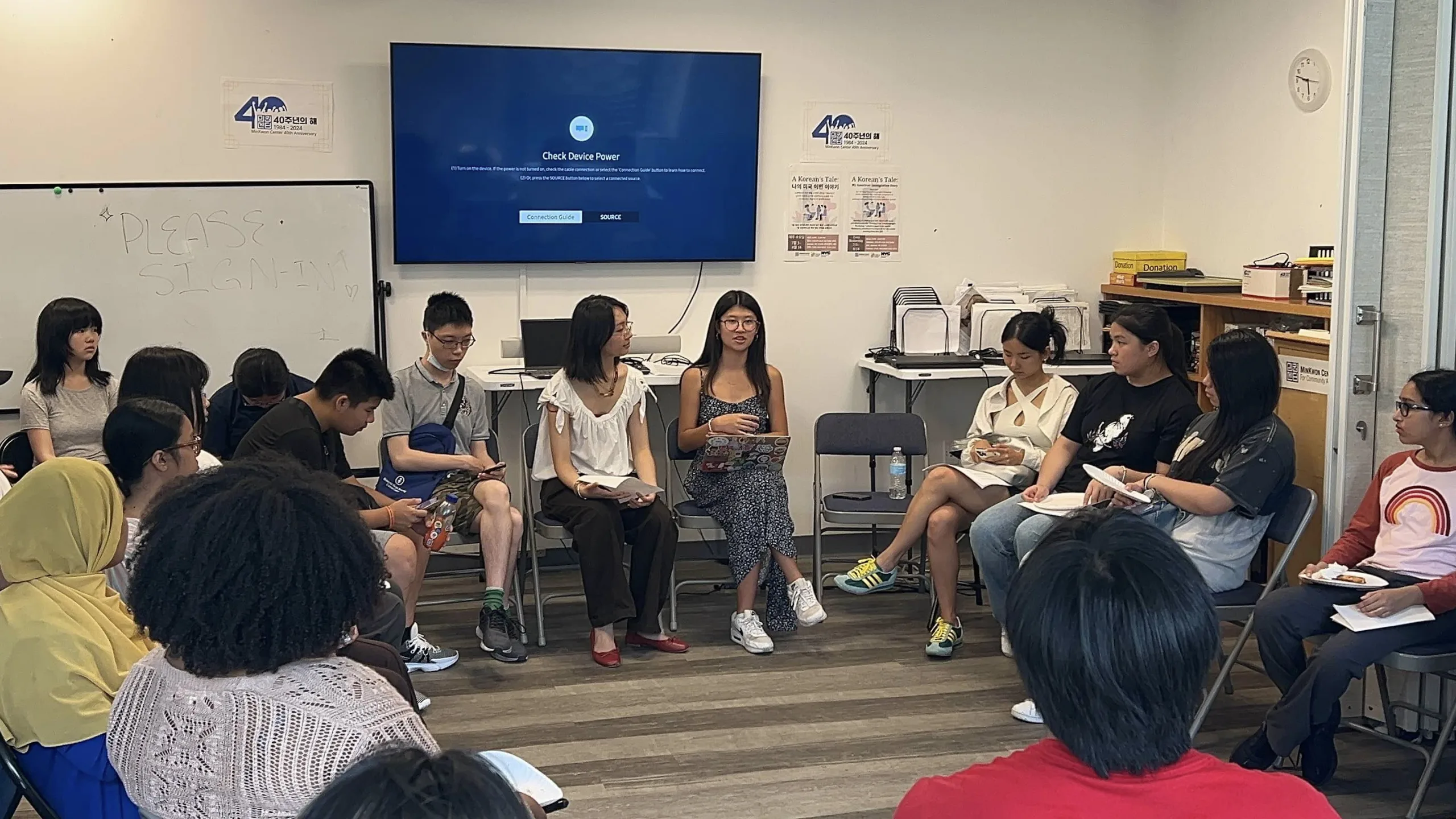
In an effort to increase voter turnout among Asian youth, Asian community organizations in New York City are working to mobilize young Asian voters ahead of the 2024 election. A report from APA Voice found that only 55% of Asian voters aged 18 to 24 participated in the last general election, highlighting the need for increased engagement.
The organizations are focusing their efforts on college campuses in upstate New York and Long Island, where Asian youth have been less engaged in the political process. Campus coordinators will lead civic engagement initiatives and work to increase voter mobilization within their congressional districts and local Asian American communities.
Challenges to Asian voter turnout include a lack of education on the importance of voting and logistical details, as well as language barriers. To address these issues, nonprofits are providing education and information to young people about upcoming elections and candidates.
Despite the challenges, the number of registered Asian voters has been steadily increasing since 2012, particularly during presidential election years.
